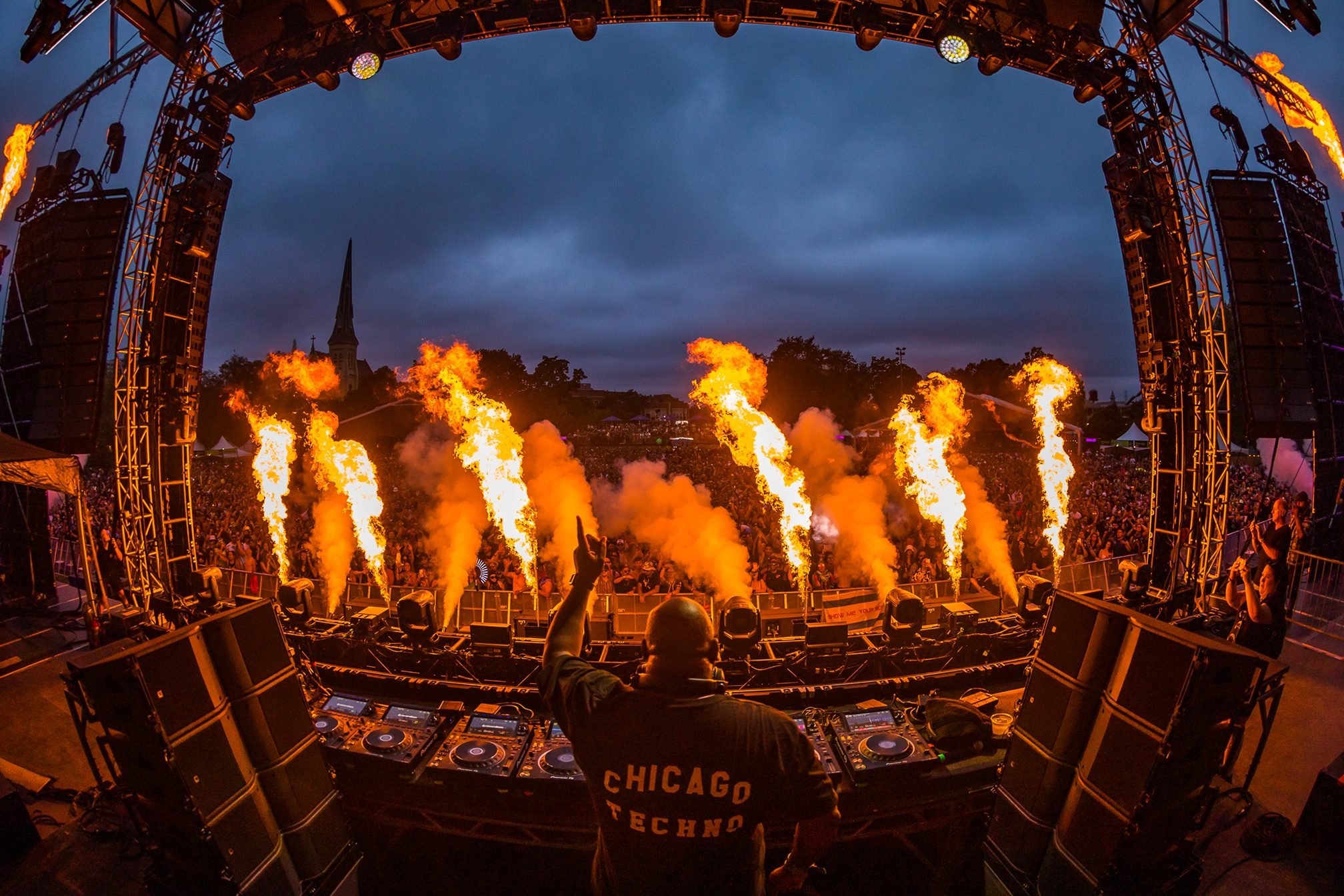 Features
Features
ARC Music Festival is a house and techno celebration fit for Chicago
ARC is a milestone event for Chicago, paying due respect to the city's foundational artists alongside showcasing global stars and high-level production
In the first weekend of September, in that perfect, fleeting moment between summer’s heat and Chicago’s notoriously frosty fall, ARC Music Festival brought 20,000 house and techno heads together to revel in the city where house was born. Across three days, people dance to a packed line-up featuring some of the city’s most influential DJs, who played alongside their musical progeny from both sides of the Atlantic. House music has been around for four decades, and ARC, now in its second year, delivered an experience that simultaneously encapsulated the roots of the genre as well as all the twists and turns it has taken over the years, reaching new audiences and inspiring younger artists across the globe.
ARC is by no means Chicago’s first large music festival, or even its first electronic music festival. However, its focus on assembling DJs who created and molded the Chicago house sound, alongside big names in techno, is something long overdue, according to Gene Farris, a Chicago DJ who has been playing underground parties and putting out classic records since the early '90s.
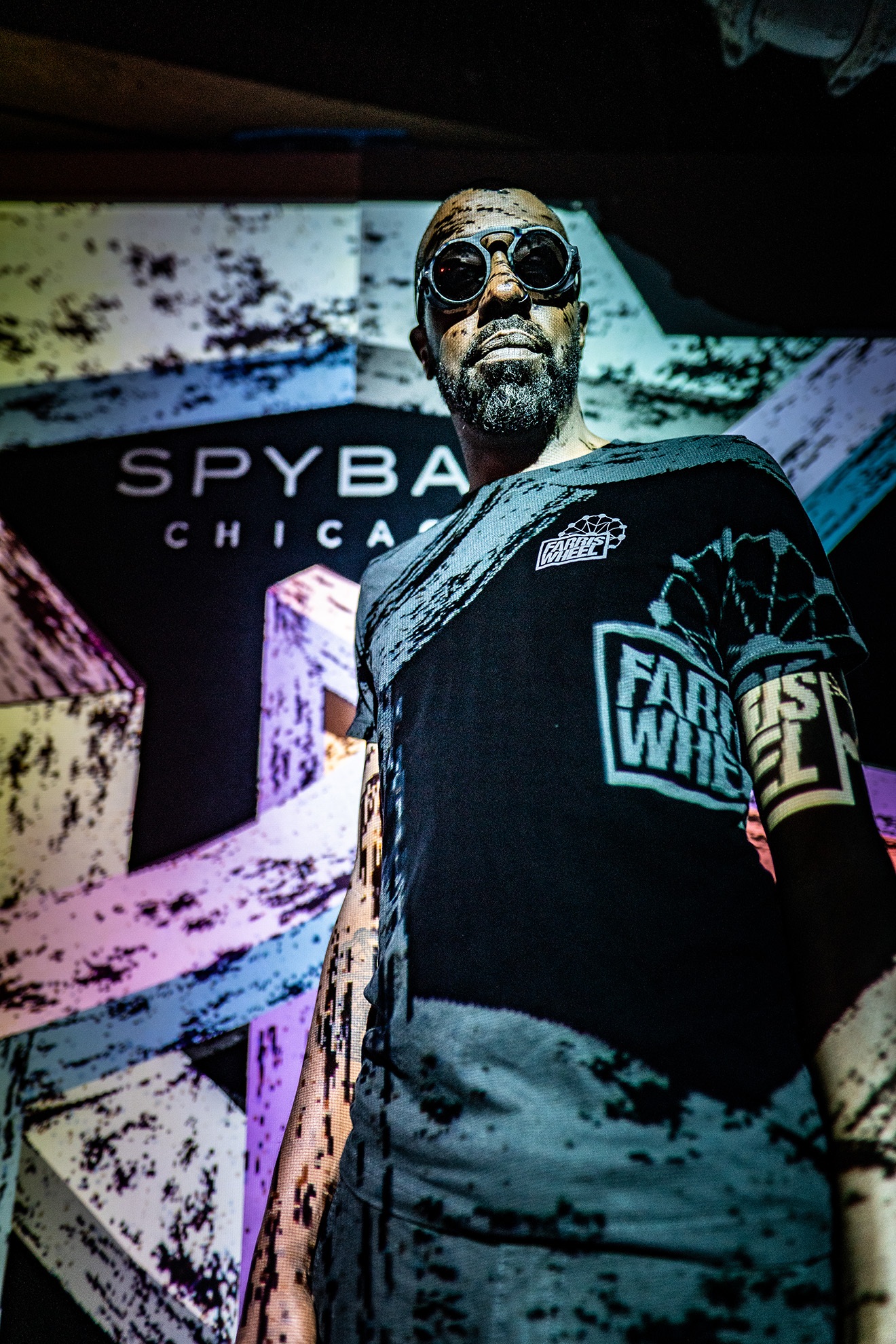
Wearing sunglasses and drinking a cream soda in the dark, storied basement club Spybar on Friday, the opening day of the festival, Farris said ARC’s presence is a necessary development for Chicago’s dance music scene, and “beautiful, because major festivals happen all over the world right now.” It would be unacceptable, “being in the place where house music started, to not have one of the coolest, biggest festivals in the world. And, from my opinion, ARC has totally delivered with that. The talent that they brought last year and the talent that they brought this year shows that Chicago is also super current with the music and our DJs.”
Hiroko Yamamura, a revered Chicago techno DJ who played an early set on Friday with DJ Hyperactive, echoed the sentiment that ARC gives a much-needed platform to artists who have been pushing the sound forward in Chicago for decades, in an endearingly self-effacing way.
“This really is the first fest in Chicago that has highlighted Chicago artists. Most of the time we've got international acts coming through, so it relegates locals to kind of like a local stage. This one they're really making an effort to put legends of Chicago house and techno on main stages. [I said] you know, most of these people have never heard of me maybe, right? And they're like, ‘Well, we want to put Chicago folks on there alongside international acts,’ which is super nice of them, and I really appreciate it. And it's really unexpected because in the past I would have been in a corner somewhere and begging my friends to come make it look not so sad.”
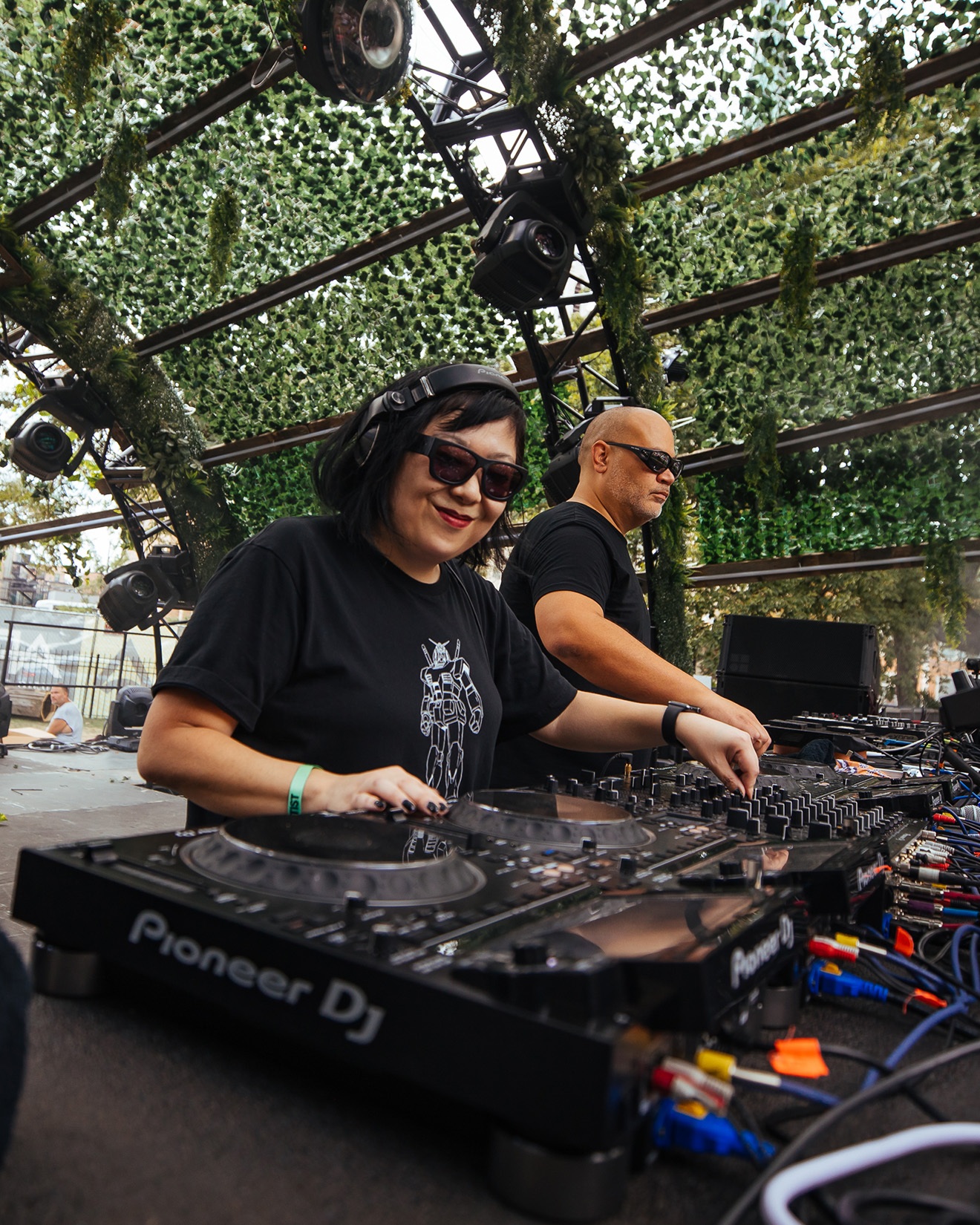
ARC founder John Curley, himself a DJ, was inspired to establish ARC Fest, in large part, because of this apparent lack of a platform for respected artists in Chicago on the international festival circuit. “Sometimes in cities, it takes a little while for them to really appreciate what it is that they have homegrown here in your own city. That's one of our big motivations for doing this, because we looked around us and saw all the other festivals, they just didn't really grasp the simple fact that this is our music, it's from here. And we felt like it needed to change. It's funny that a lot of people say, ‘I don't know how Chicago didn't even have a festival like this already.’ I mean, it's the birthplace of house music, the whole point, the whole overarching ethos that started here and went everywhere around the world… let's bring it all back here and showcase it in such a way that the actual founders of house music are playing right there, [with] people from all over the world.”
The ARC founders were consistent in addressing this mission throughout the organization and booking process of the festival, booking both Chicago house DJs and international techno acts on the same stages. “Even agents would say, ‘Oh well, this guy's name is bigger.’ We're like, ‘No, it's not.’ No one's bigger than Derrick Carter. No, one's bigger like Green Velvet. They're all the same size [on the festival bill] and they're in alphabetical order and they're going to be treated with the same amount of respect. I don't care who it is. So that was really important too.”
Aiming to establish a festival that takes stock of the state of house and techno through earnest appreciation of these genres’ roots, ARC’s organizers set the stage for a weekend-long marathon celebration of house and techno, fit for Chicago.
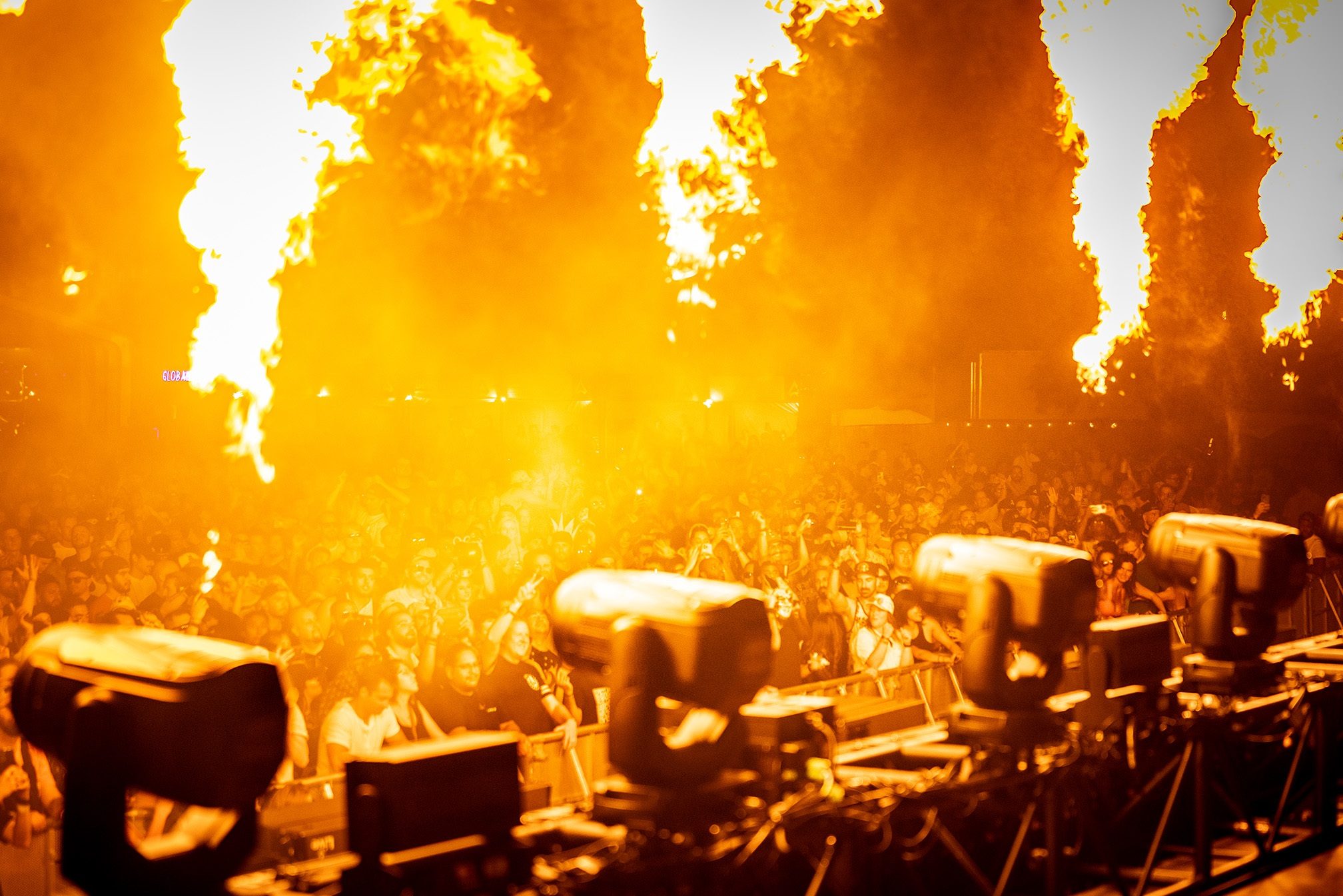
On Friday, Lake Michigan’s breeze stretches its fingers two miles inland to the sunny festival grounds at Union Park (not far from the now-defunct Warehouse, where the term “house music” derives its name). Attendees hear kick drums pounding louder and louder as they swiftly fill the grounds, and upon entering, are met with a choice of three mainstages: The Grid, the enormous mainstage surrounded by painted shipping containers, as well as a massive tent organized by Elrow, brimming with psychedelic under-sea decorations and DJs playing in the toothy mouth of a giant octopus, and a Tulum-inspired conical Expansions stage covered in vines.
The energy from the crowd gradually picks up through the day, leading to a powerful climax when Detroit staple Richie Hawtin takes charge of the closing set at the foggy Expansions stage Friday evening, playing driving techno over a sea of dancers, while people take it in either on the dancefloor, sitting on rattan chairs, or even up in trees.
The general attire is largely a mix of West Coast festival garb, but many people also dressed in black, with various hometown pride slogans emblazoned (“Chicago Techno” shirts and “Detroit vs. Everybody” hats were a common sight), and despite this strong show of hometown pride, in surveying the crowd, the attitude of the festival’s attendees was ubiquitously welcoming and celebratory, with roughly a third of the audience visiting Chicago from out of town for the event.
Everyone in the crowd, whether they're club kids just getting into house and techno, or much older house and techno fans, speaks effusively, not only about the music, but also about how respectful and kind the festival-goers are overall. ARC seems to have a place for everybody, no matter when or how they were initiated into the scene. ARC founder Stuart Hackley and co-founder of Auris Presents, the company behind the festival, notes that “ARC is an 18 plus event. We see an average age of 31-years-old. So we're speaking to a very wide age range, all the way from 18 up to 50 plus.”
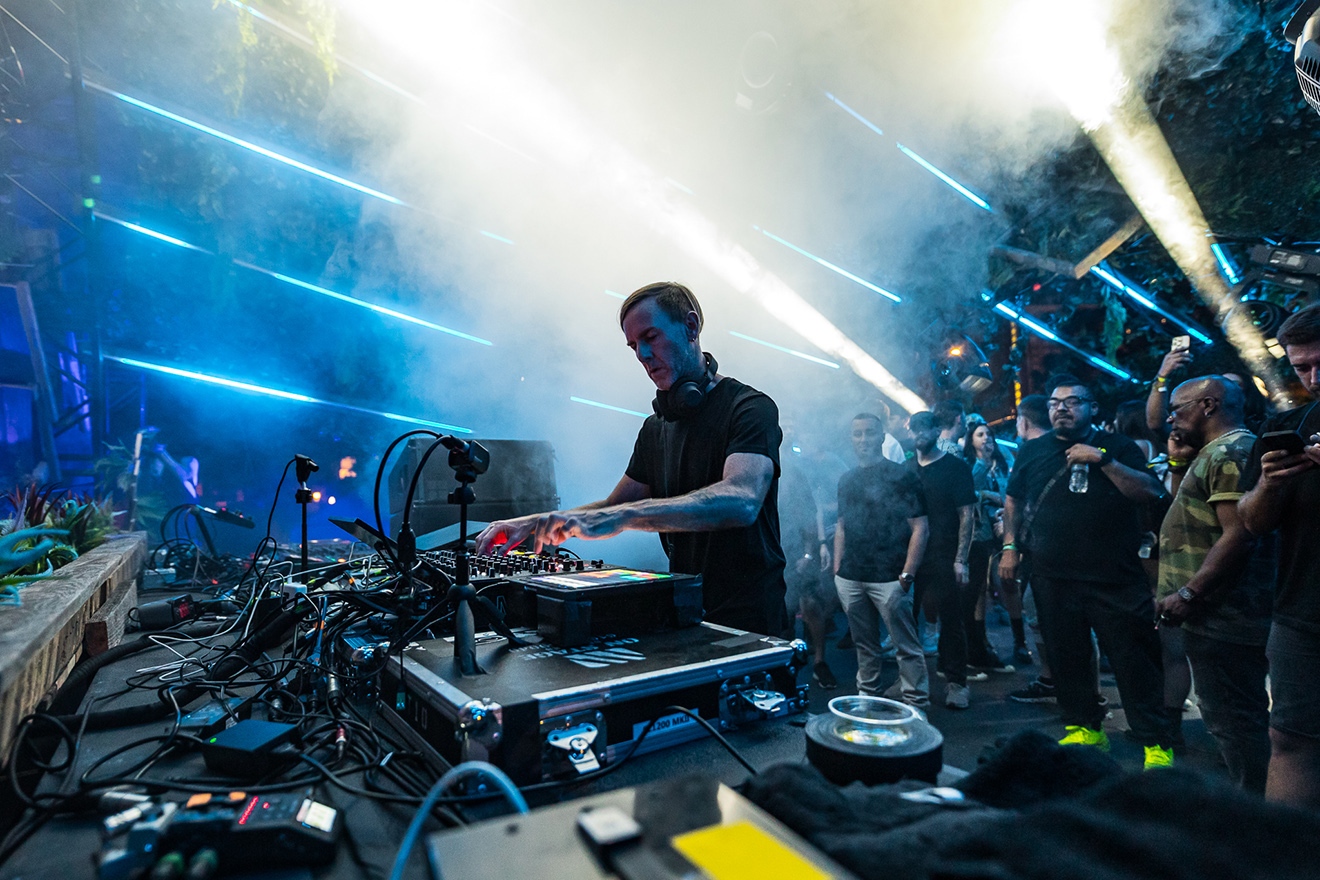
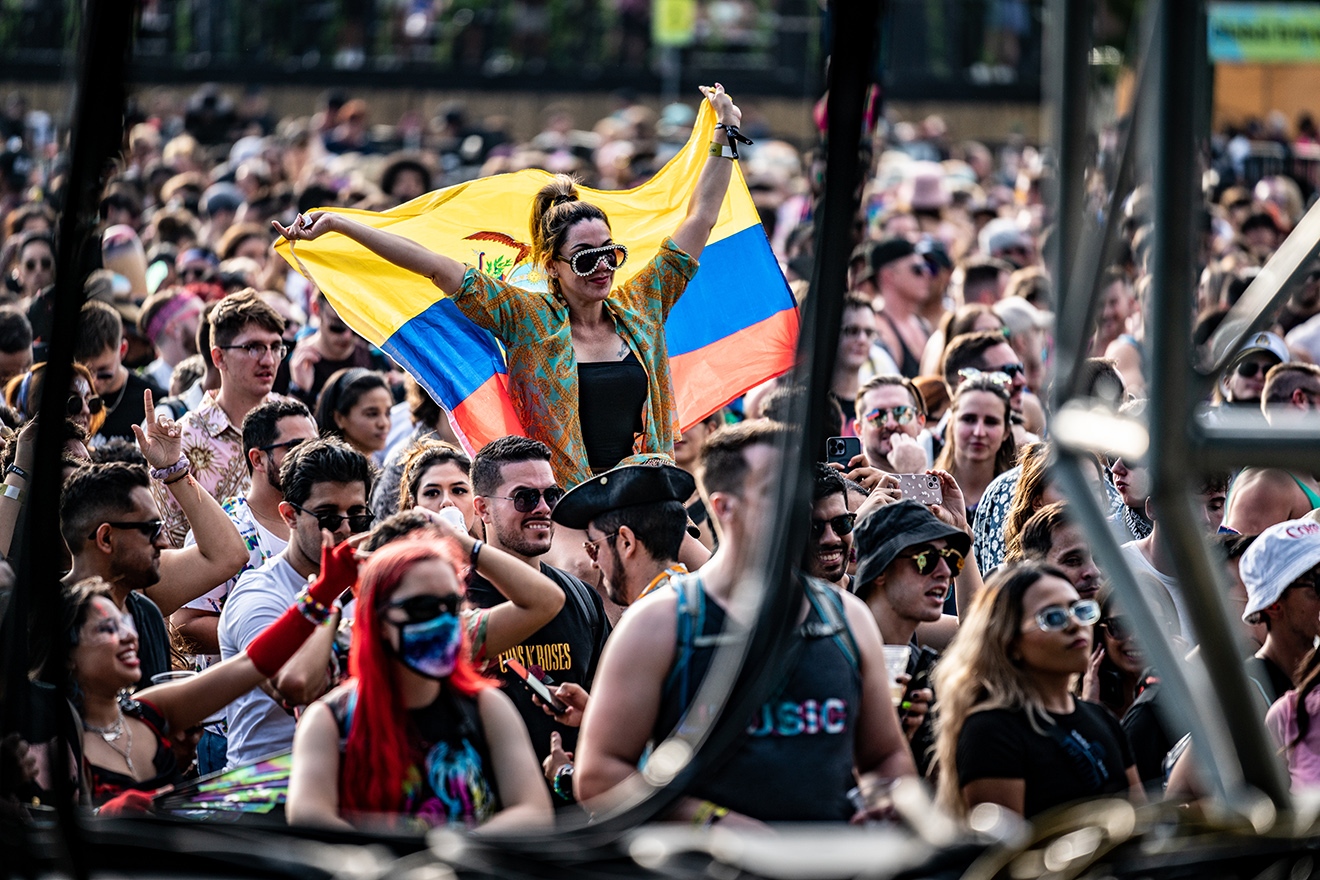
In line with the communal ethos of house music, ARC serves an auxiliary function: as a place where artists from different generations can connect with each other.
Ron Carroll, a now-legendary house DJ who still continuously throws parties in Chicago, describes this element of the festival, saying: “ARC is incredible. I think it's an incredible concept because what it does, it pays homage to the older guys who actually paved the way and it gives them a chance to have top dealings with people that's current today, that grew up listening to our music, we’re very proud of them. All the older cats are always proud of the young ones who come up, so it's good to be able to play alongside of them and we all meet each other. It's a good thing.”
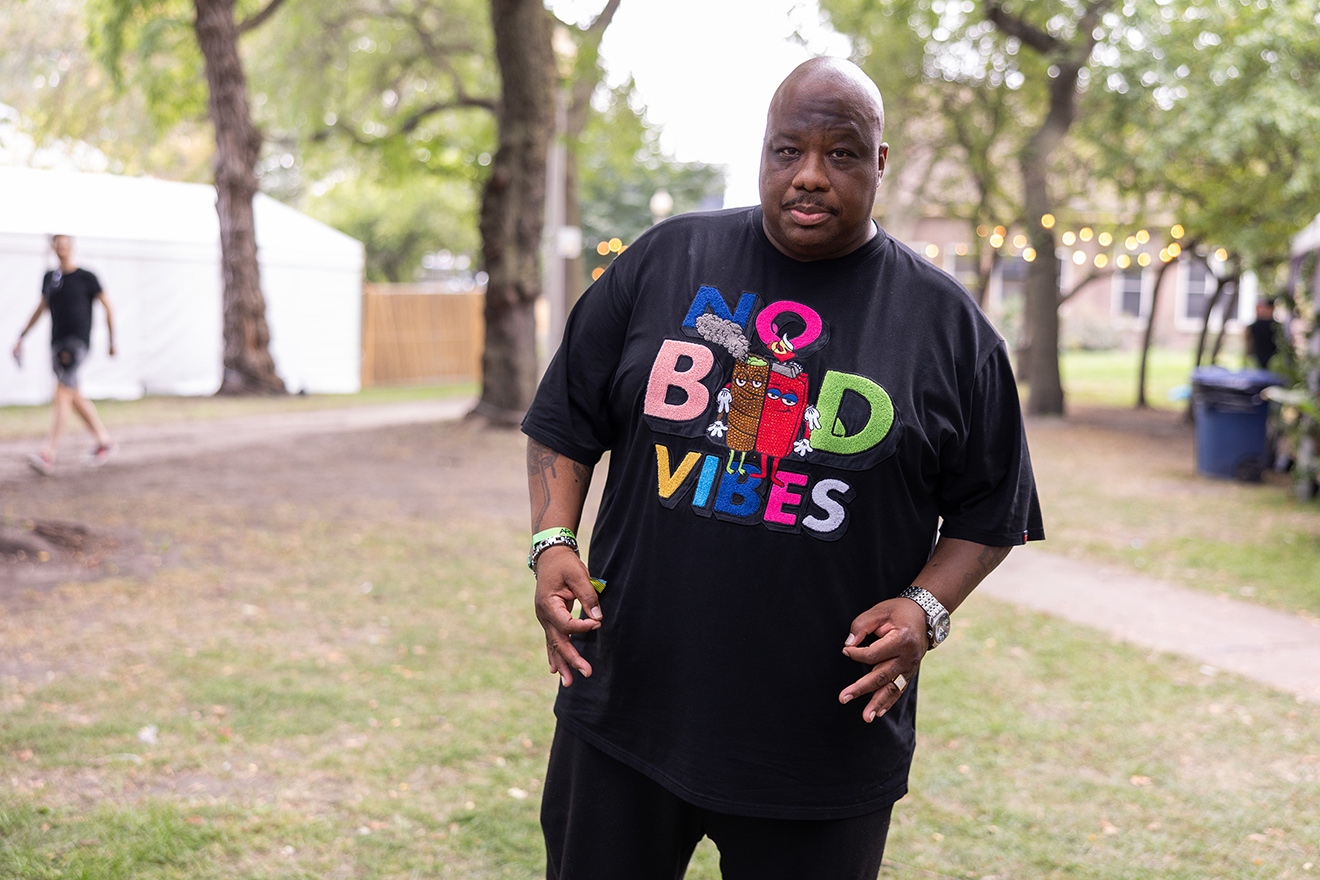
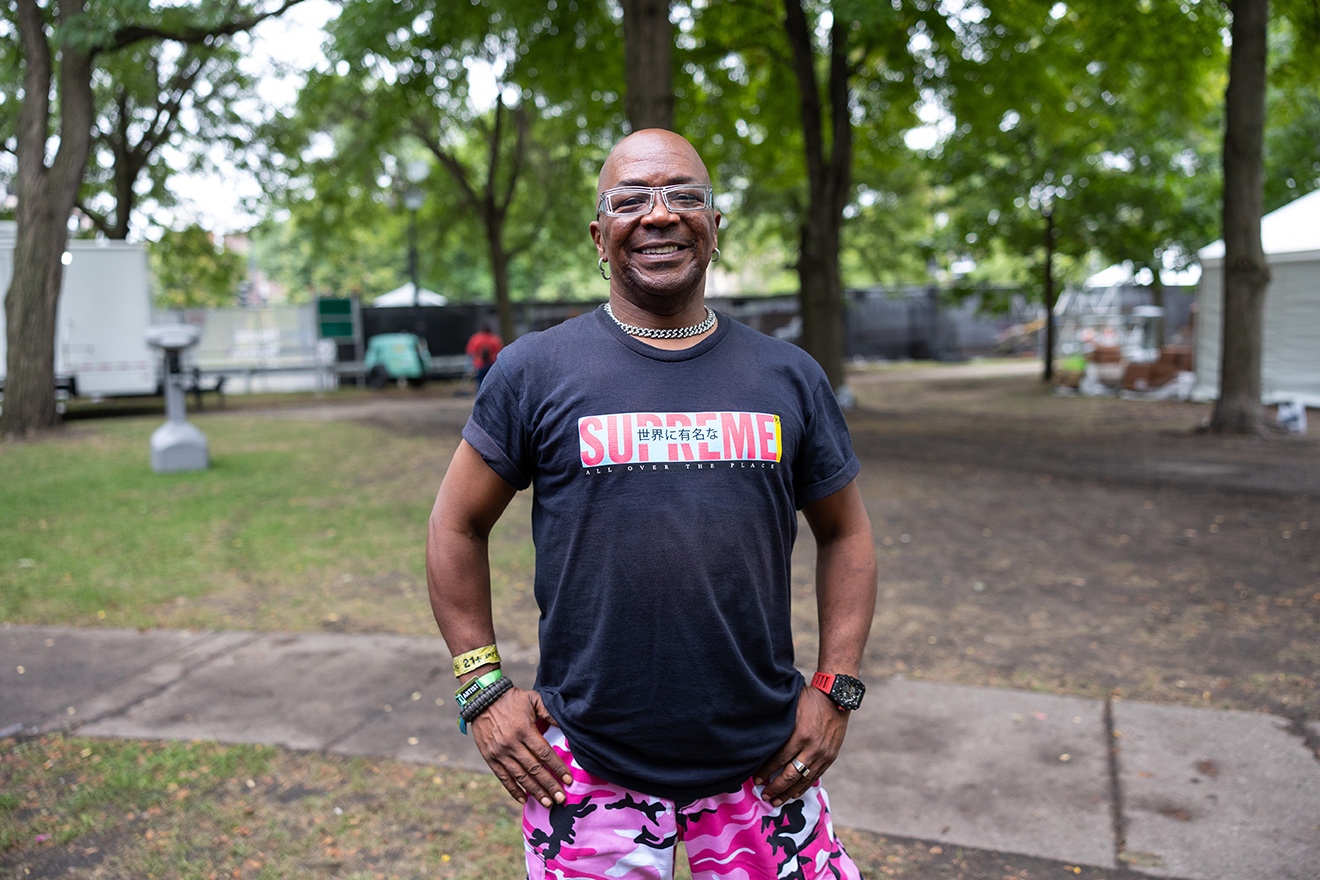
Another Chicago house legend, Chip E, who plays the Elrow tent on Sunday, describes a proud moment with Hawtin: “One of the greatest things to happen for me at this event, besides my set, was meeting Richie Hawtin. Richie Hawtin is on top of the game. He's been in it forever. And when I met him, he told me, ‘Chip E, I played your music since I was a teenager and the best part of being here at this festival playing in Chicago is meeting you.’ And he called me ‘Mister Chip E,’ and I was like, ‘bro, you don't have to call me Mister! Makes me sound old.’”
Moving between the stages, attendees stumble upon a fourth, smaller stage, which stood adjacent to a school bus outfitted with a powerful speaker system. This stage, the ARC Car, features younger, local DJs, including Jeilah, who moved to Chicago a few years ago after cutting her teeth playing clubs in Minneapolis.
“I played on Friday at the ARC Car, which was powered by GoodBus, which was also full of local talent. You get a lot of different varieties of house, techno and punk stuff because it's all local people.” For Jeilah, an up-and-coming Chicago-based DJ who also played a disco house heavy set in the Artist Lounge, the festival was a profound experience. “To be at the artist tent, not just also playing at the festival on Friday, but to be at the tent in a space where I'm playing for people that I have watched and studied, people like Fatboy Slim and Honey Dijon and Gene Farris. For me, it's insane, you know what I mean? Even standing behind Ben Böhmer and watching him produce live, I'm just like, ‘I used to just sit on YouTube and watch this stuff all the time. Now here I am, I'm an artist here with you guys.’”
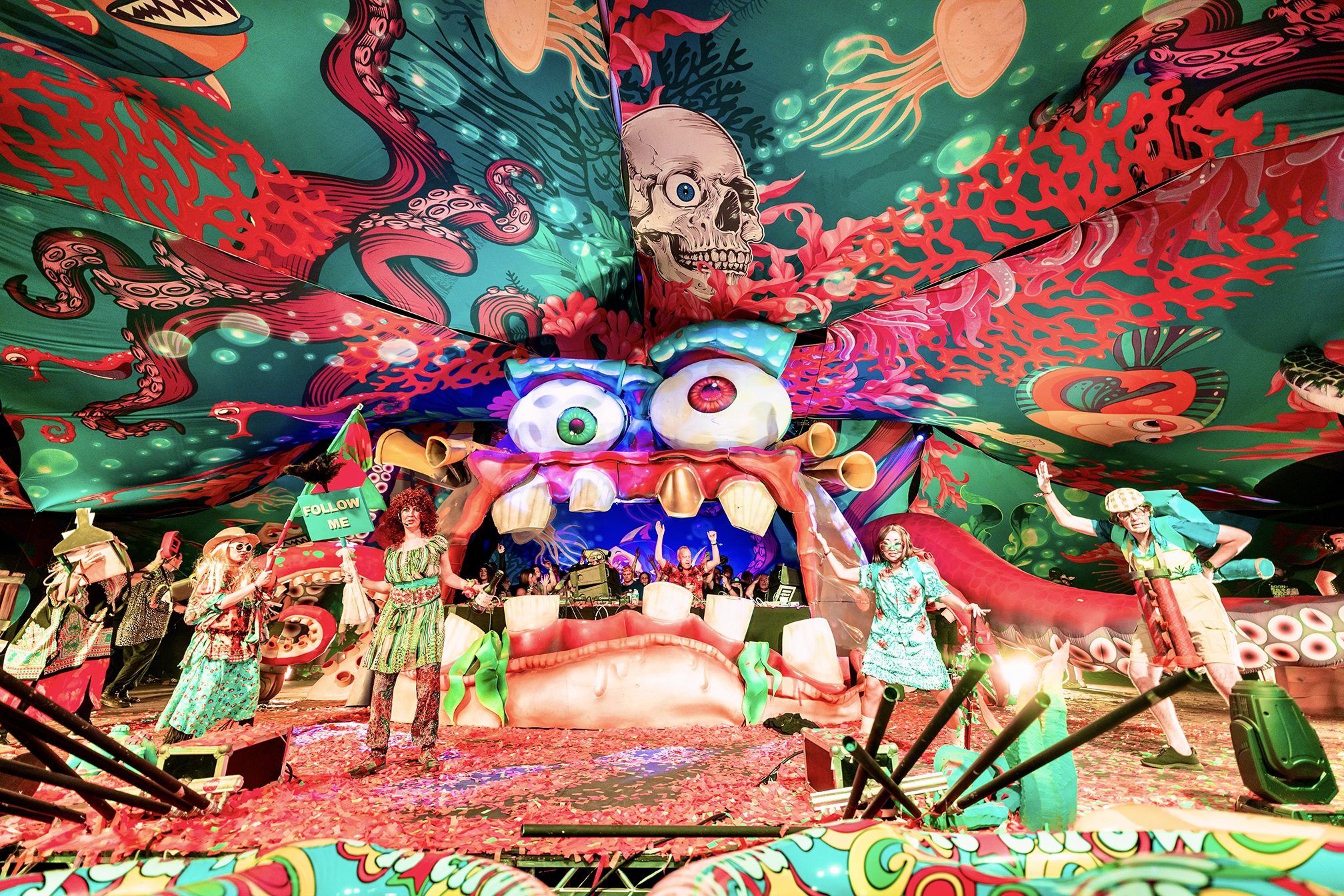
On Saturday, inclement weather slowly rolls in through the day, and the Elrow tent becomes both a place of refuge from the rain and a locus of intense energy. Stepping in is like walking into a solid block of humidity, amidst thousands of exuberant people dancing in ecstasy, lacing the air with sweat. Gene Farris plays back to back with Mike Dunn, closing with Armand Van Helden’s emotional, filter-house anthem 'You Don’t Know Me', a track which encapsulates the resistant quality of house music through it’s mantra-like lyrics, called out by vocalist Duane Harden over and over: “You don't even know me / You say that I'm not living right / You don't understand me.” Through all the changes and growing pains that house has experienced both as a genre and as a community of artists and audiences over four decades, the deep emotional edge of this track still cuts through the crowd; showing the spiritual release house offers is as potent and well-received now as it ever has been.
Over at the ever-foggy Expansions tent, Derrick Carter throws down a back-to-back set with Mark Farina. The crowd is grooving along to a house remix of El Chambo’s “Chacarron” as they pass the reins over to beloved Chicago DJ Honey Dijon, who opens her closing set with an acapella of the Talking Heads’ 'Once In A Lifetime' over H.C.C.R.’s 'Son of Mongo', turning up the heat, and keeping the energy high through the set. In the midst of it all, she throws in another acapella of Kendrick Lamar’s 'Savior', inspiring some in the crowd who’d been hanging back for a while to get fully stock in, losing themselves to the spectacle.
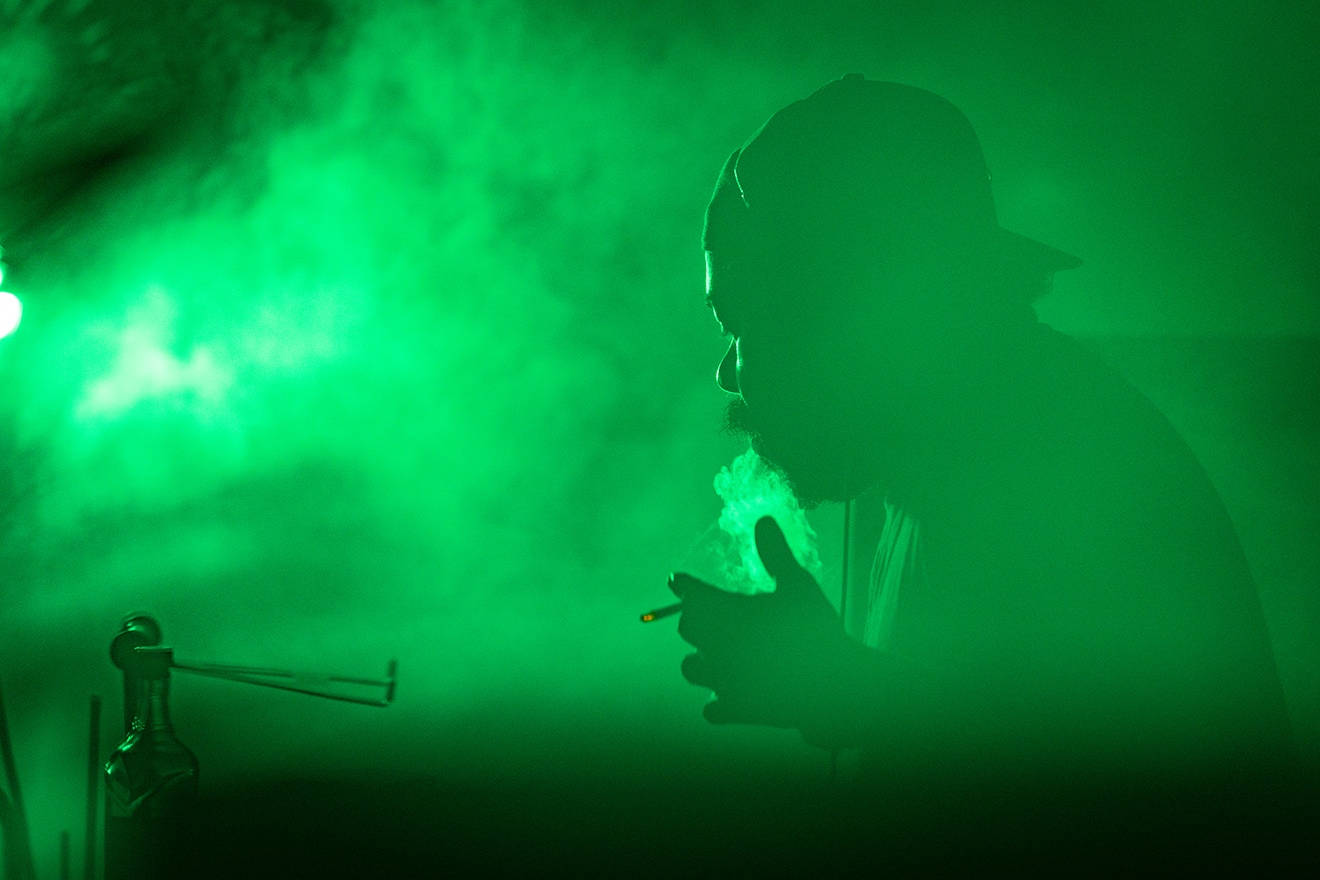
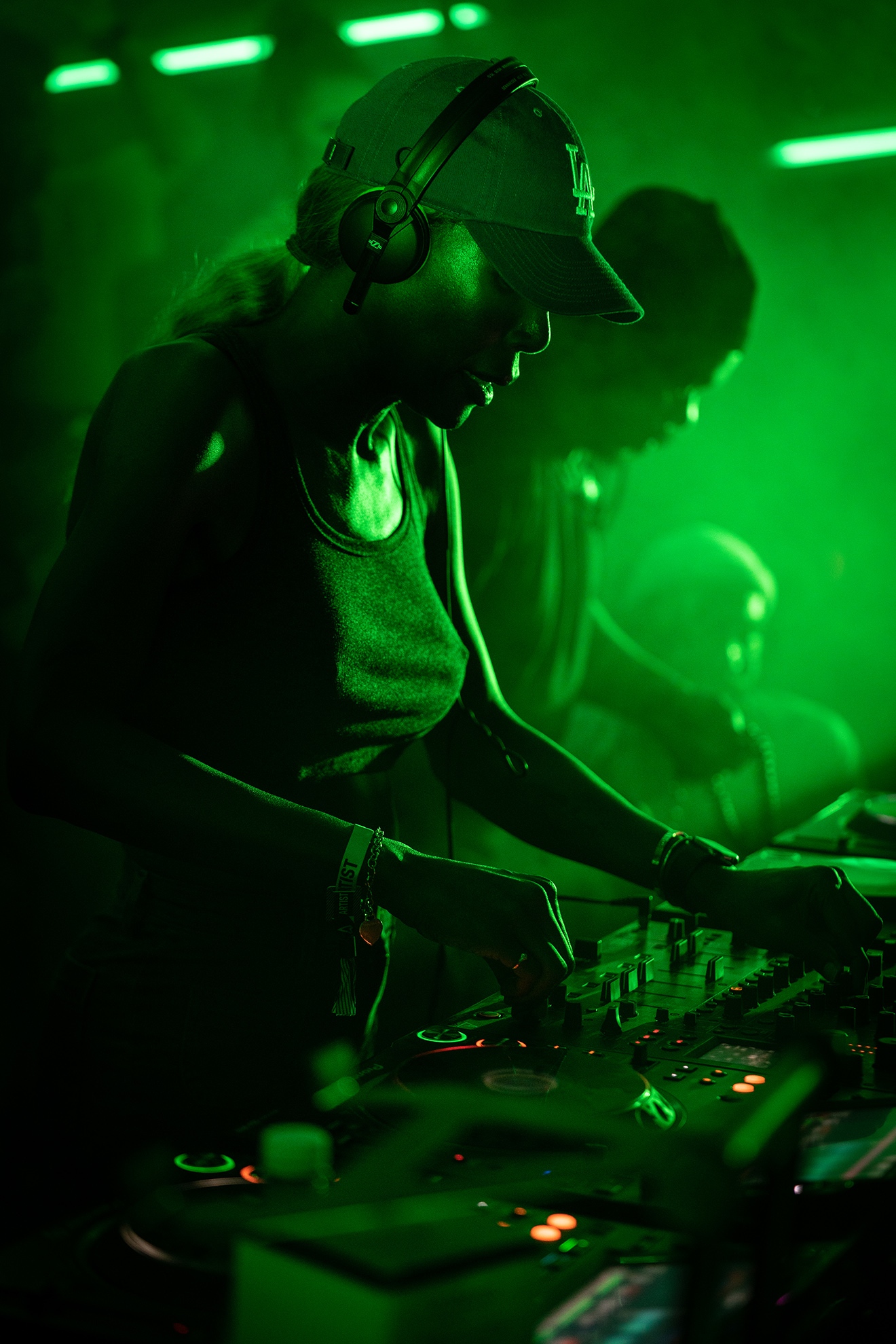
The grounds are lined with numerous food, merchandise, and beverage stands so that queues are never too deep, even when the festival is at capacity. Although the areas in front of the stages are consistently packed with dancers, it's remarkably easy to navigate the festival grounds, so much so that one could conceivably catch all their favorite acts, even if they're playing sets at different stages at the same time. Large figurative sculptures are also dotted around the grounds, which light up as the days gave way, adding to the sense of otherworldliness which permeated the atmosphere. Only the Chicago skyline and hay fences lining the grounds planted this place in the Midwest.
Amongst the numerous Chicago DJs, elsewhere on the line-up there's techno heavy-hitters like ANNA and Sama’ Abdulhadi on Friday, Carl Cox and Charlotte de Witte on Saturday, and Adam Beyer playing B2B with Cirez D on Sunday. The Elrow tent also sees thumping sets from Green Velvet and Claude Vonstroke’s Get Real Saturday evening, with Fatboy Slim shutting down the tent on the final day.
ARC made a real attempt to promote and organize a stacked line-up of afterparties all weekend, for a nightlife program called “ARC After Dark”. Curley described it as “a citywide takeover of the venues that are respectable venues that actually would host stuff like this and we just take it all over.” The afterparty series includes events at smaller renowned clubs like Smartbar and Spybar, but also the massive Radius facility at Cermak Hall, a warehouse venue which fits thousands of people, allowing clubbers to filter between the two main rooms to see the different headliners, true to form for ARC’s “choose your own adventure” festival organization, where audiences could sample sets from as many artists as they pleased.
On Sunday, the final day, any assumptions that the ARC crowd may have worn themselves out after 48 hours of partying are quickly dispelled when looking out into the crowd from the mainstage at The Grid during Vintage Culture’s earth-shaking set. The audience dancea ferociously, shaking the crowd-control barriers in the pissing rain. People are even more energized than on previous days, as if everyone is trying to squeeze everything they can out of this last day, in disbelief that it will all be over so soon.
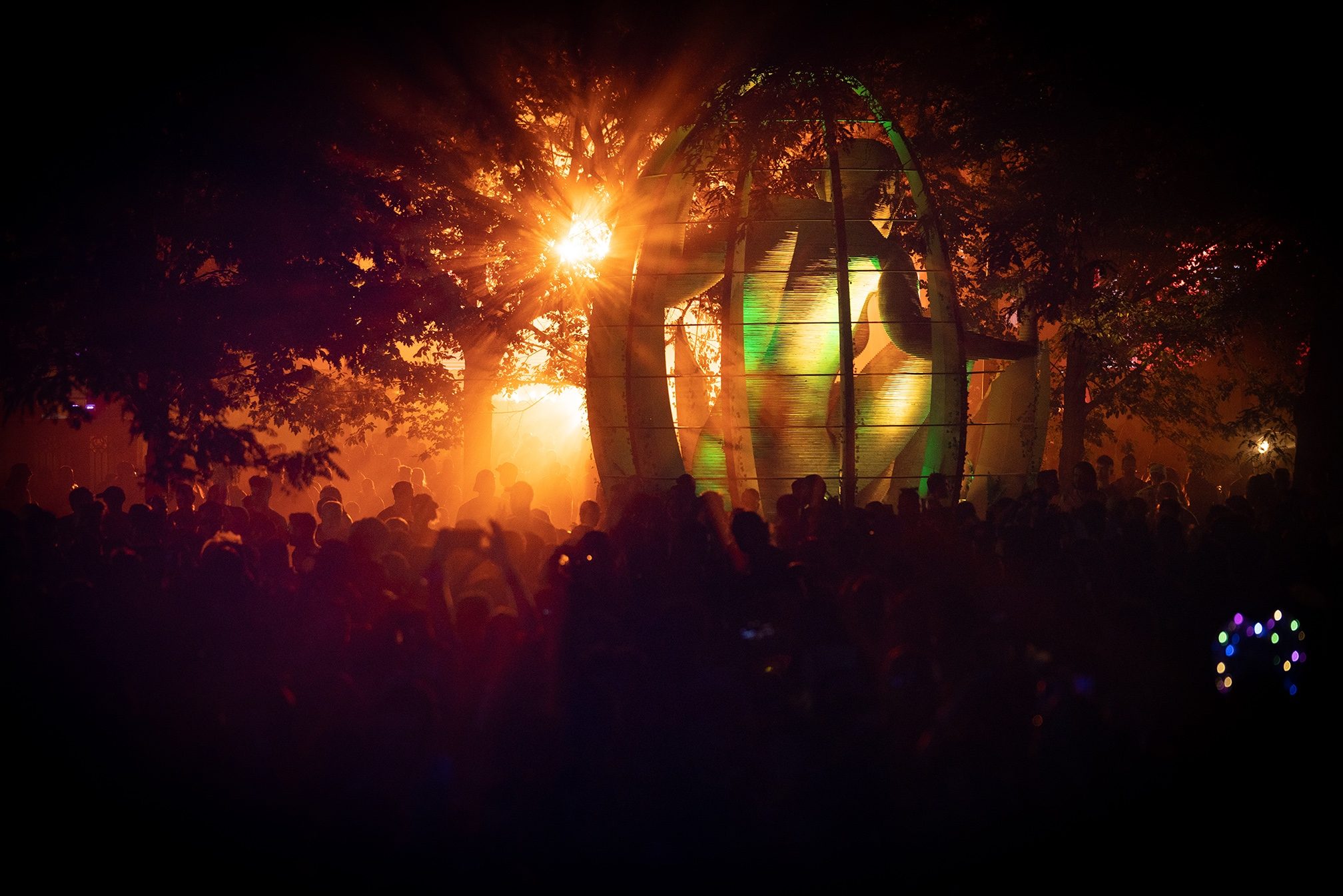
While the swung 909s and filtery disco samples of a track like Ron Carroll’s “Angel” seem to capture a particularly-Chicago flavor, it’s clear from the wide range of sounds, classic and newfangled, experienced at this festival, that house is not just a sound but an amalgamation of the spirit of the music and the people who love it. The house sound has evolved in countless ways over the years, it’s hard to define or pin down, and there’s a flexibility to it, but at its core there is still an overwhelming sense that house is an underdog genre of music. It’s a resistant form of music that connects people wherever it is played.
The formal origins of house weren’t cleanly defined either, and the early scene can be best-described as one that emerged in marginalized communities in Chicago, drawing influence not only from disco but also from futuristic dance rock and New Wave.
DJ Lady D, another renowned Chicago DJ and house veteran who played at Expansions on Saturday, spoke at the storied Gramophone Records about early house culture being more of a scene where people drew a sense of identity from, rather than a rigidly-defined style of music.
“I started going to parties when I was a teenager in the beginning of the early days of house. I would say house is like an ethos. We were fully house, and what that meant was it was a lifestyle, a way of thinking. There was a camaraderie among people. You looked a certain way. We liked our tight jeans, we liked polos. It was a preppy look, and sometimes a little bit of punk, too. Jean jackets and safety pins through it. We loved all of the British music, too. New Wave that was coming out. That was a big part of early house, Italo disco, of course, punk and soul in the early days.”
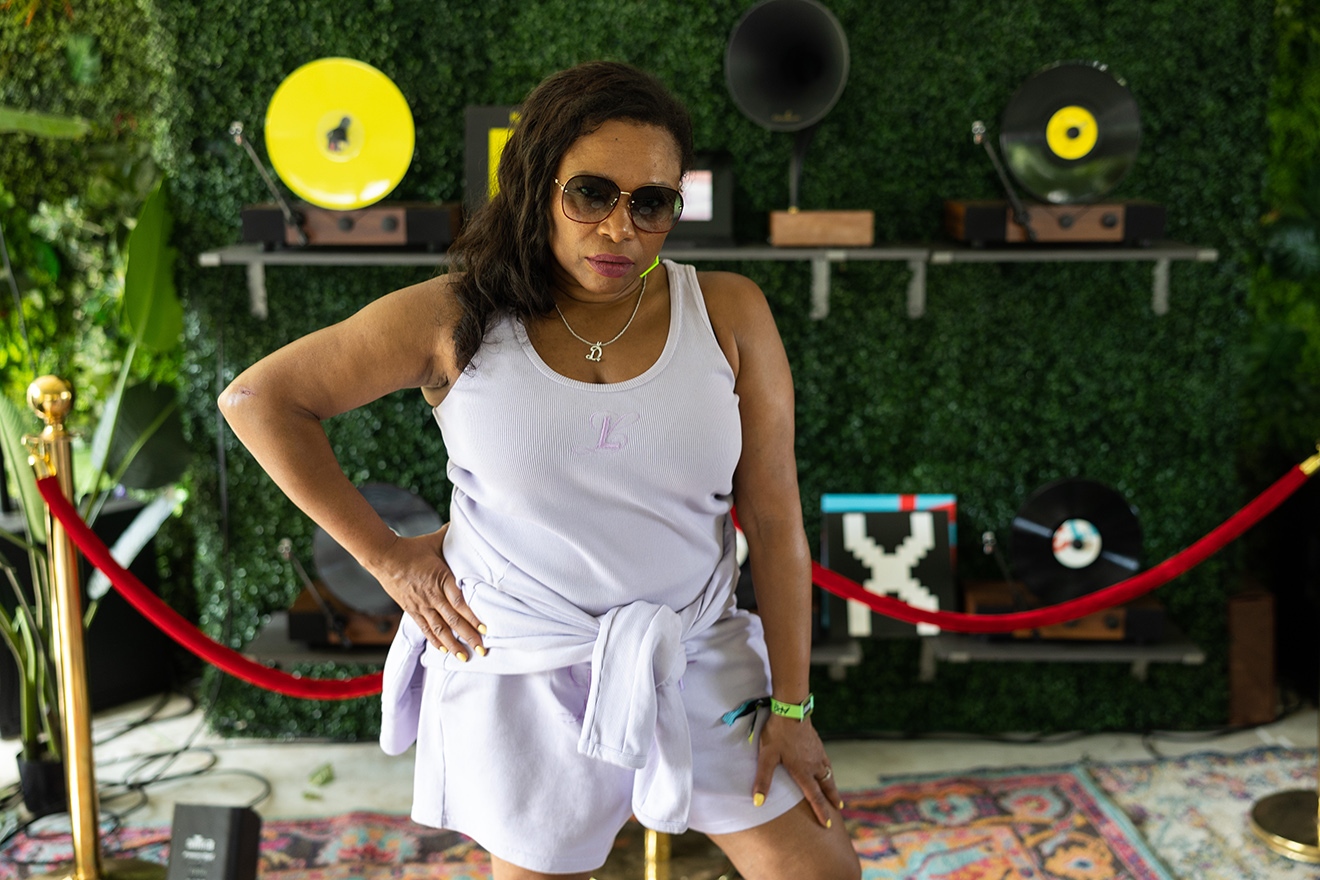
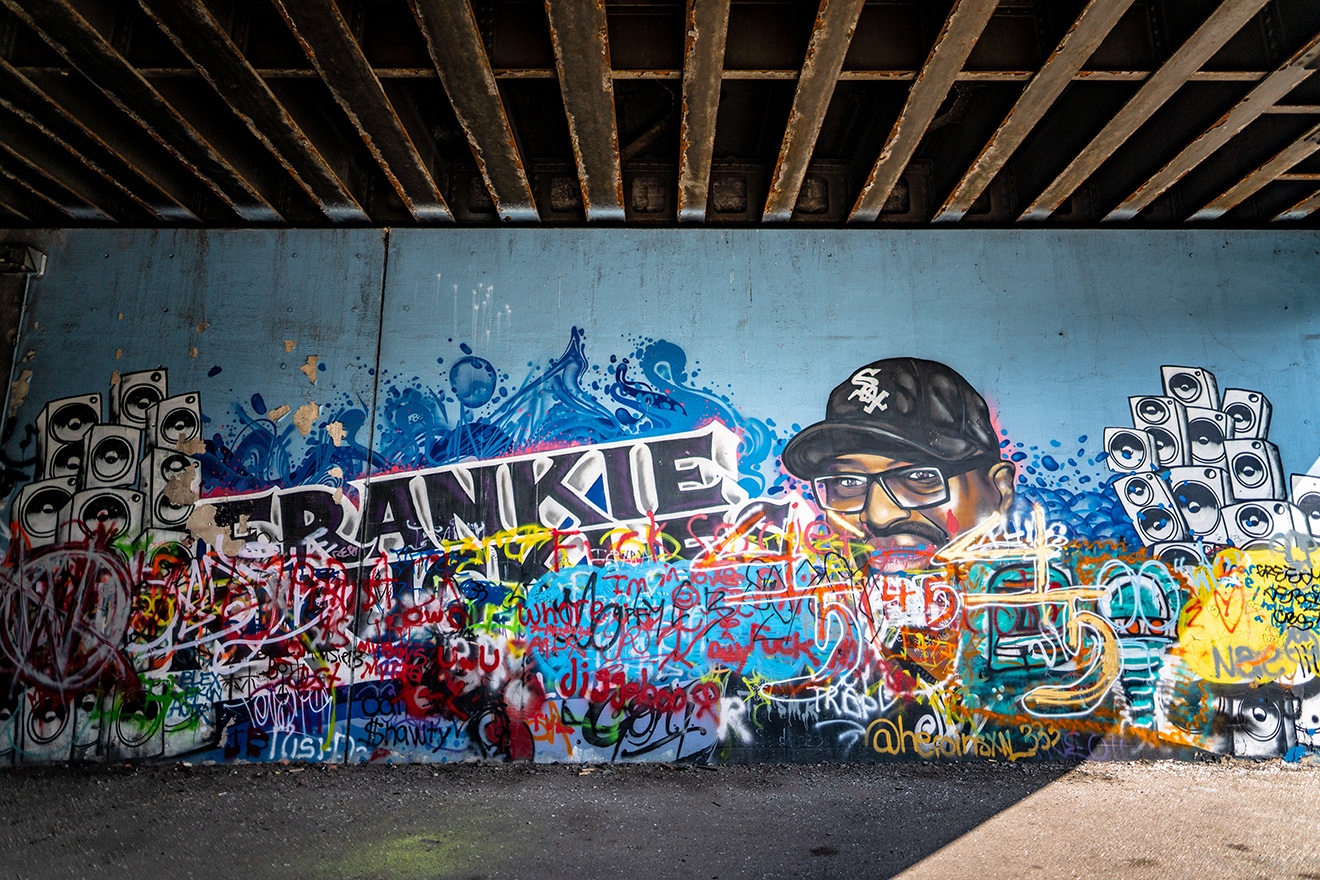
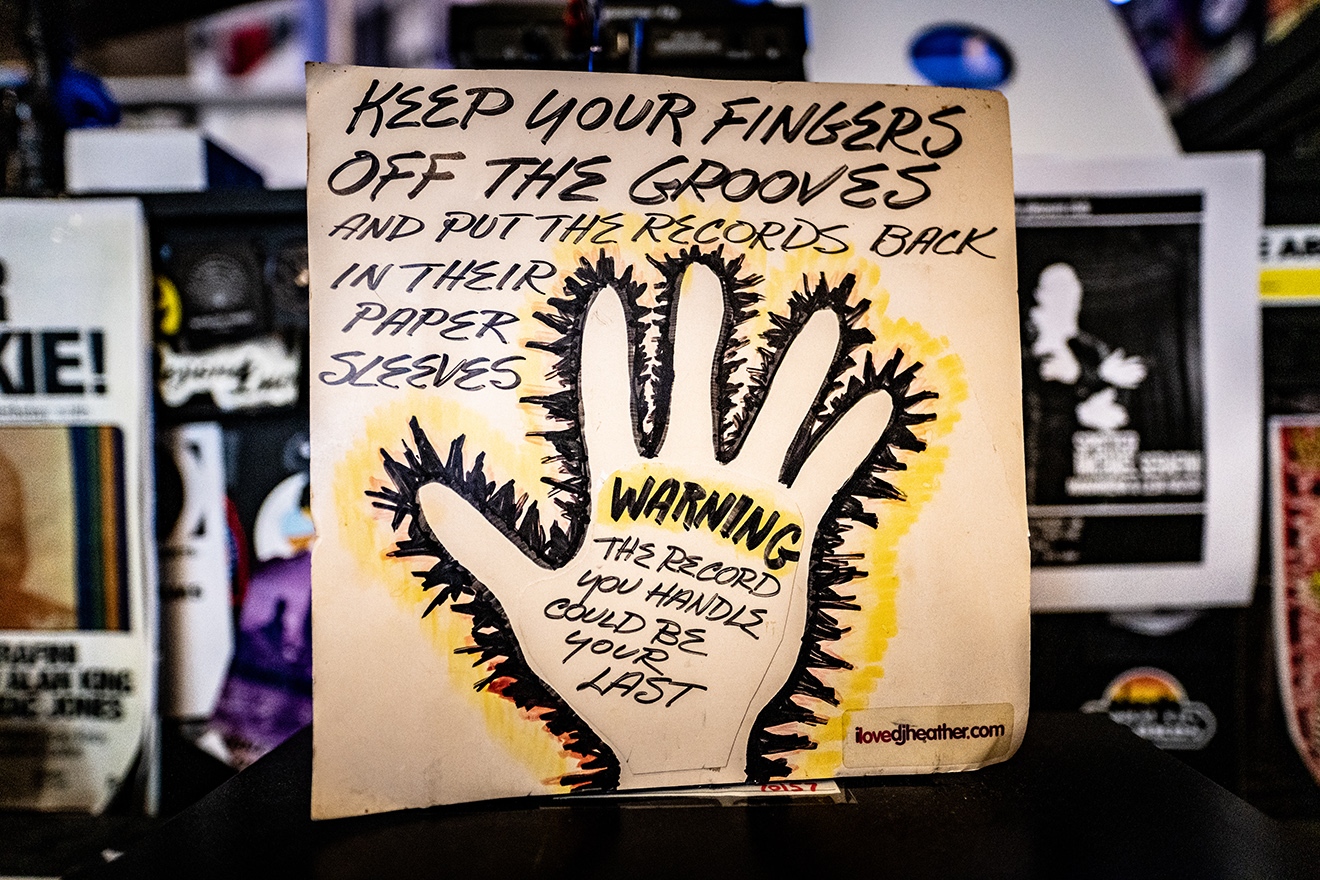
Ron Carroll described the roadblocks early house artists faced trying to garner radio play, even in their own city, saying that radio stations and the broader public “looked at house as a lower form of music. You have to remember, music is promoted by someone's interest and their ego. So house music was looked at as the misfit child, gay sound––at the time, they didn't want it on the radio because they thought that it was bad, they thought that it made you do drugs. They thought all this, that's why this country never locked into it. Whereas Europe, you didn't just see it in one sect of people — bottle-service clubs, regular clubs, they would play it. When I was growing up, you had to find it.”
Detroit techno has had Movement since the turn of the Millennium, so why has it taken this long for Chicago house to reach the important (but arguably foundational) milestone of having an event like ARC, that seeks to amplify the originators of house music in a globally-competitive festival setting? Amidst long-standing, systemic barriers, particularly for Black artists, in the American music industry, including struggling for the broad reach and perceived legitimacy that radio play offered in the '80s and '90s, Chip E offers an analogy for how all the innovations that house gave the world might have been taken for granted in the country of the genre’s origin.
“I always talk to people about Mrs. Fields' cookies. If Mrs. Fields was your mom, people would be like, ‘Oh yeah, your mom makes good cookies,’ but people who actually buy them, they're like, ‘these are the best cookies in the world.’ But for you, because you're the child of Mrs. Fields, you're like, ‘They're just cookies. She makes cookies on Sundays. It's not a big deal.’”
Attending ARC, you experience various qualities of the music and its surrounding culture, which began right here near these festival grounds: the ethos, sound, and message has spread across the world, and after being reinterpreted and flipped and sampled, it's reverberating back into the city at this event. The truth is, now that house music has cemented itself so deeply amongst audiences around the globe, many of whom have taken it in myriad new directions, there’s still a little bit of Chicago everywhere. No matter how far the sounds themselves have strayed from the swung 909 patterns and sultry, powerfully emotional vocals, by listening to house music in any form, audiences are paying homage to what emerged from Chicago, whether they realize it or not. Many of the DJs from Chicago who were billed at ARC have been routinely putting on their own parties in Chicago for decades, without regard for the waves of ephemeral mainstream attention that cyclically brush the genre and the city.
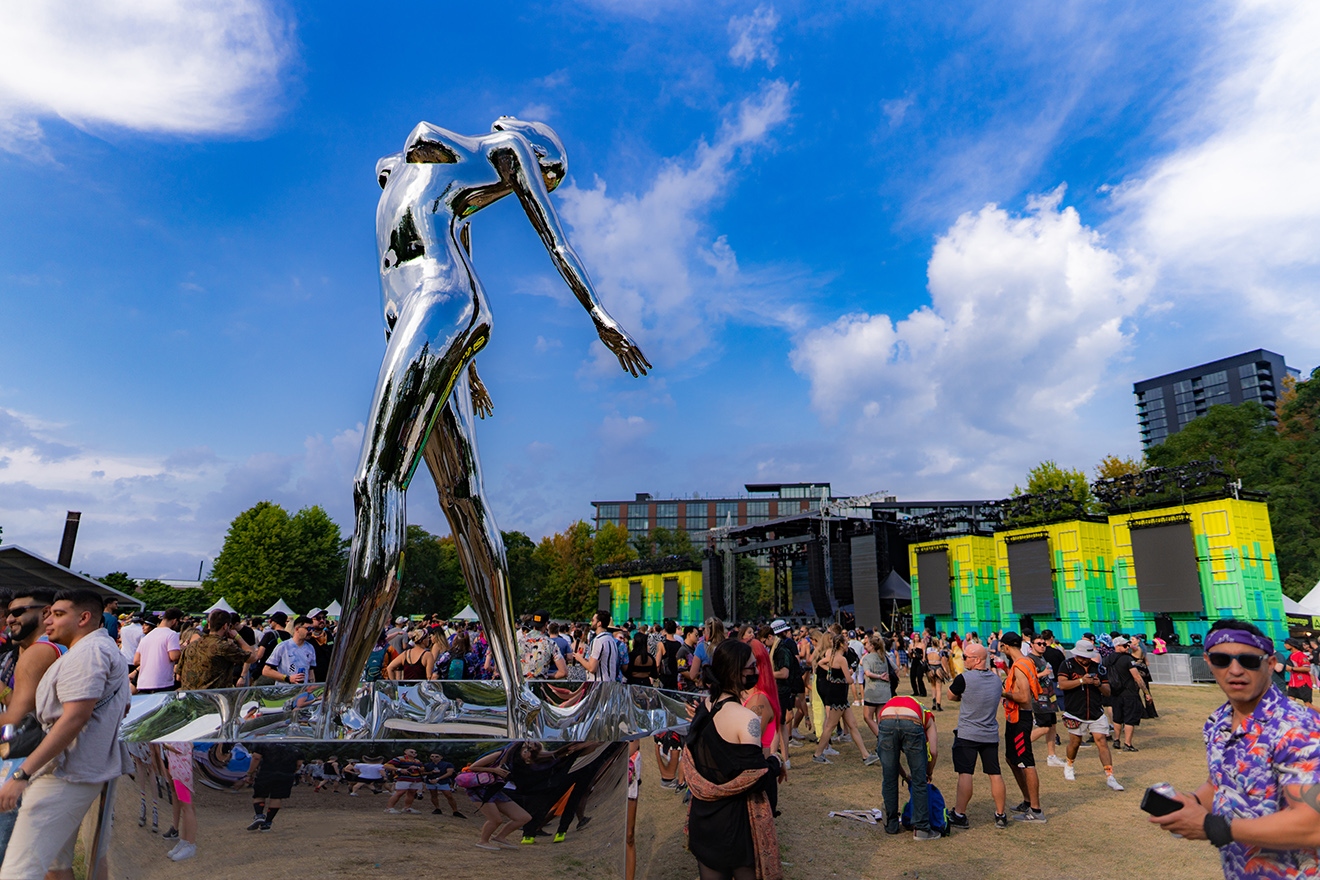
As Saturday night fell, Charlotte de Witte closed out The Grid, high above the crowd in front of an LED wall, pummelling the vast, enraptured crowd with high-BPM techno. But if you looked closely enough, you would see none other than Ron Carroll, veteran of Chicago’s house scene, standing there in the photo pit just below the stage, kicking it right next to the mainstage subwoofers, which were as loud as jet engines, with pyrotechnics ablaze just feet away, enjoying the music, all else be damned.
While ARC, on its surface, is a polished, high-production-value festival, the resilience and strength of the Chicago house community was on display throughout the weekend, if you kept your eyes open to it.
David McGraw is a freelance writer and photographer, follow him on Instagram


